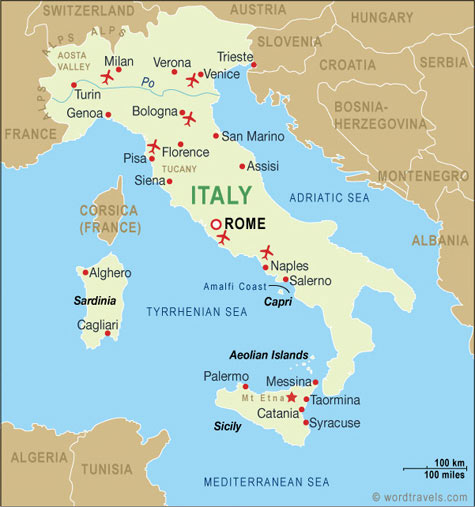G8 agriculture ministers to unveil global food strategy
 Cison di Valmarino, Italy - Agriculture ministers from the world's richest nations were expected Monday to emerge from the final session of a three-day meeting, with a global strategy aimed at bolstering global food security.
Cison di Valmarino, Italy - Agriculture ministers from the world's richest nations were expected Monday to emerge from the final session of a three-day meeting, with a global strategy aimed at bolstering global food security.
"We still need around an hour's work," said Italian Agriculture Minister Luca Zaia, indicating that the final declaration from the Group of Eight (G8) agriculture ministers meeting would be ready by midday.
With the number of hungry people in the world expected to top 1 billion this year, high hopes have been placed on the talks in the northeastern Italian town Cison di Valmarino.
They represent the first-ever gathering of agriculture ministers from the G8 which includes the US, Japan, Germany, France, Britain, Italy, Canada and Russia.
On Sunday evening, Zaia, whose country currently holds the G8 presidency, said some "chipping of the marble block" was required to come up with a final unified document because of divisions within the group. However, he provided no further details.
The ministers, according to a draft copy of the final declaration obtained by the German Press Agency dpa, appear to acknowledge the failure of past strategies aimed at fighting world hunger.
"We are very far from reaching this goal," the draft document states, referring to the so-called United Nations Millennium Goal of 2000 that pledged to halve the number hungry people in the world by 2015.
France and Italy both expressed support for creating global stocks of cereals to fight future spikes in food prices, including those stemming from speculation.
However, officials indicated that the US and some of the other countries don't share this view.
On Saturday the talks were expanded to include the so-called G5 emerging economies - China, India, Brazil, Mexico, South Africa - as well as Australia, Argentina and Egypt.
Zaia at one stage hinted that the custom and import duties on agricultural products, as well as "quality standards," remained a sticking point between the G8 nations and those representing the G5.
Poorer nations accuse richer nations of using "standards" to protect their own products, including foodstuffs.
Zaia reiterated a view he said his G8 colleagues shared - that food security consists of producing enough quantity to feed people, but that the other component, quality, needs to be safeguarded by standards to prevent products that threaten people's health. (dpa)